Fascinating Traditional Cultures! 8 Destinations in Nagahama, Tsuruga, and Kaga

If you love Japanese artisanal crafts, shrine festivals, and traditional townscapes, visit Nagahama, Tsuruga, or Kaga, three cities in the Hokuriku Region that thrived through their proximity to the Sea of Japan. We introduce eight of the best destinations in these charming cities.
Traditional Cultures and Charming Towns near the Sea of Japan
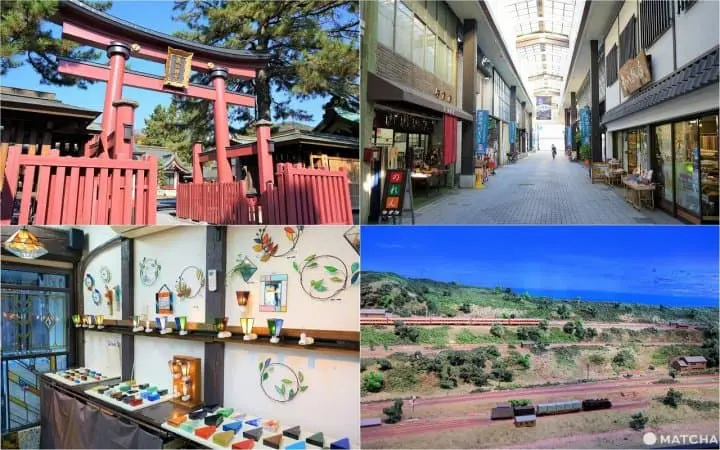
Charming townscapes with beautiful wooden buildings, gorgeous festivals that have held communities together for centuries, and traditional crafts that show the amazing skills of Japanese artisans...
If you love traditional Japanese culture and would like to see it up close, embark on a trip to cities like Tsuruga, Nagahama, and Kaga. These cities are in the Hokuriku Region of Japan and have thrived thanks to the Sea of Japan. We'll introduce eight destinations here that you shouldn't miss.
Nagahama - Discover Sacred Sites and Artisanal Crafts

Nagahama is located on the eastern shore of Lake Biwa, in Shiga Prefecture. A castle town in its early days, Nagahama flourished as a city of artisans and merchants. Walk along its streets and the rows of elegant wooden houses will steal your heart with the charm of their traditional architecture.
This city boasts a famous spring festival, as well as many exciting places to visit--from a sacred island with ancient temples to museums, beautiful shopping streets, and artisans' studios.
1. Chikubushima Island
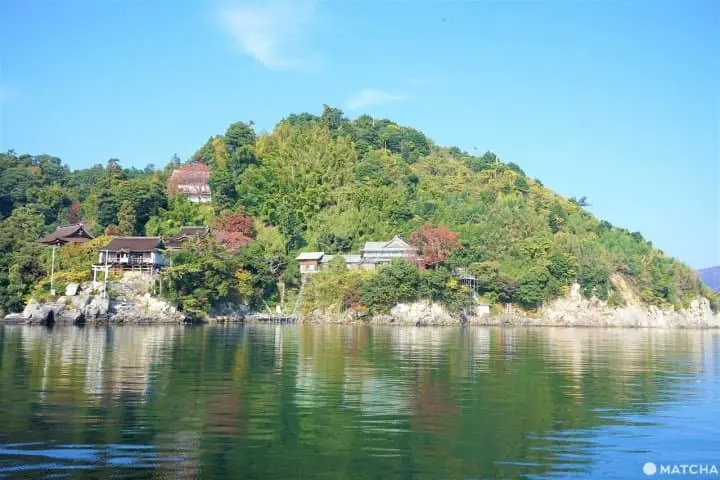
Chikubushima, an island in Lake Biwa about 6 km off the coast of Nagahama, has been regarded as sacred ground for centuries. The island is home to ancient temples and shrines visited daily by travelers seeking blessings.
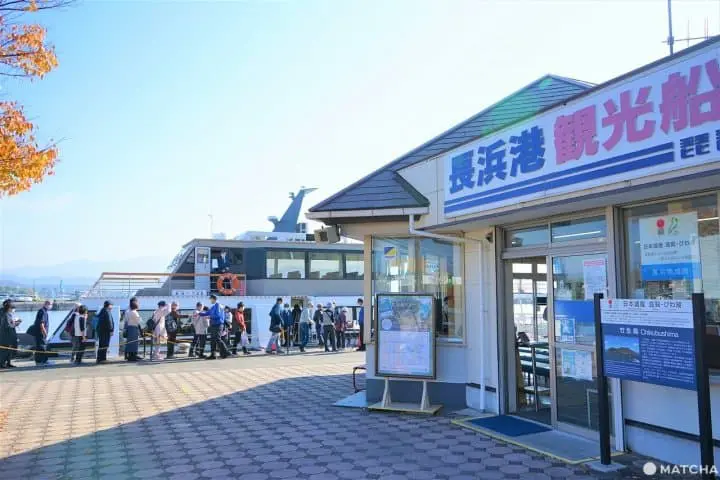
Chikubushima can be reached by a cruise boat that departs several times a day from Nagahama Port. A round-trip ticket for an adult costs 3,130 yen. The ride from Nagahama Port to Chikubushima takes about 30 minutes. Once you reach Chikubushima, a 500 yen fee is required to enter the island.
Visitors can tour the temples and shrines freely, at their own pace. A tour takes about two hours, after which you can board any of the cruise boats heading back to Nagahama Port.
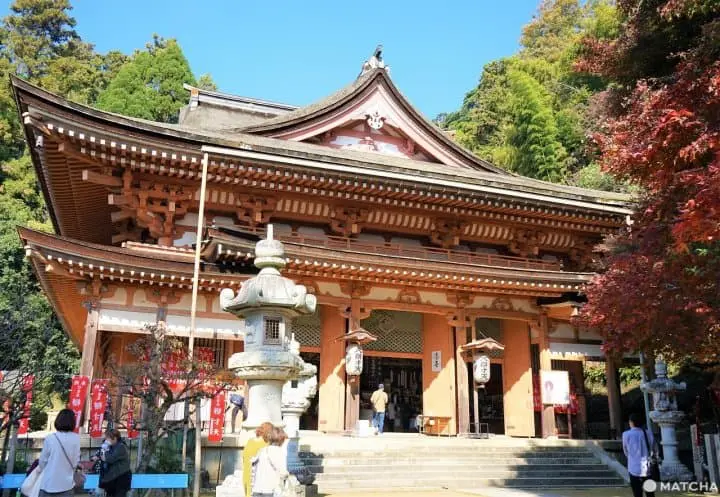
One of the highlights of Chikubushima is Hogonji Temple, dedicated to Benzaiten, the goddess of wisdom and the arts. Benzaiten is often portrayed holding a biwa lute. Lake Biwa is believed to be named for its resemblance to a biwa lute when viewed from above.
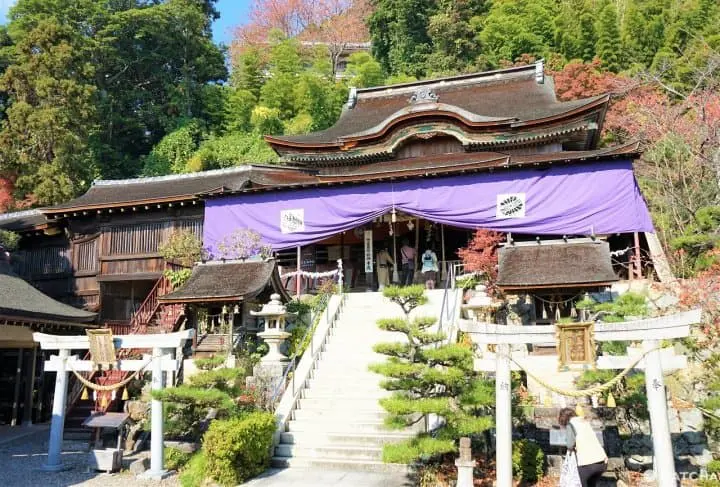
The island pathways lead visitors to another great place to visit: Tsukubusuma Shrine. Dedicated to the Dragon King, the patron deity of waters and protector of those who travel at sea, this shrine honors four deities: the Dragon King, Benzaiten, Ubusunagami, and Hebigami.
The shrine is facing the lake because it's believed that the Dragon King dwells at the bottom of Lake Biwa.
Home to both a temple and several shrines, Chikubushima perfectly illustrates the syncretism of Buddhist and Shinto beliefs as they were practiced in premodern times.
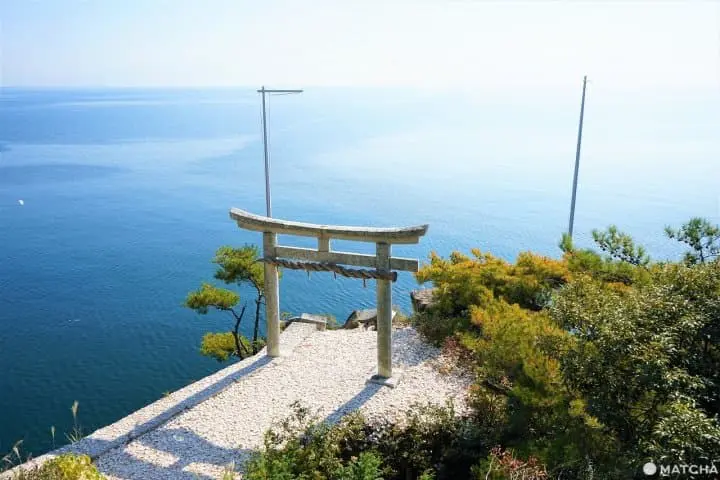
Since Lake Biwa itself is regarded as a deity, a torii gate is located on a cliff facing the lake. Those who have a great wish can try their luck at kawarake-nage--throwing special ceramic plates toward this torii. It is said that if you manage to throw a plate through the torii, your wish will be fulfilled.
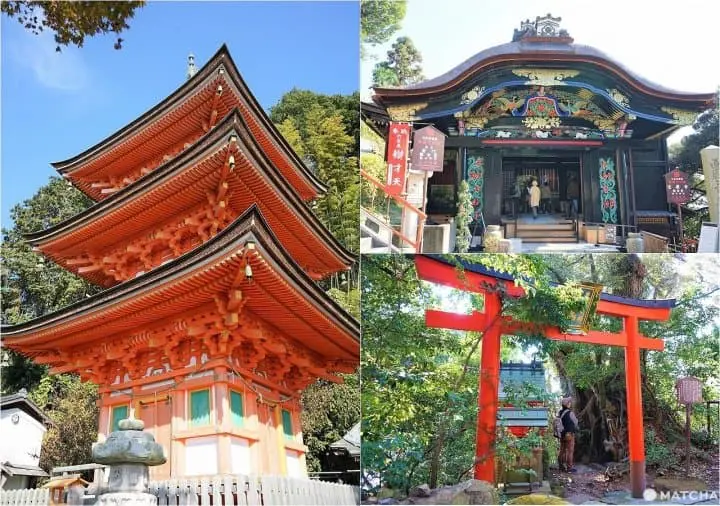
Along the pathways connecting the two main highlights of the island, visitors will encounter many other beautiful structures. A majestic three-story pagoda, a Chinese-style Karamon Gate that was originally part of Osaka Castle, and smaller shrines dedicated to local deities--each of these structures has its own legends. What pilgrims call the "spiritual energy" of Chikubushima might be another name for the joy of encountering so many fascinating stories and legends in one place.
2. Kurokabe Square
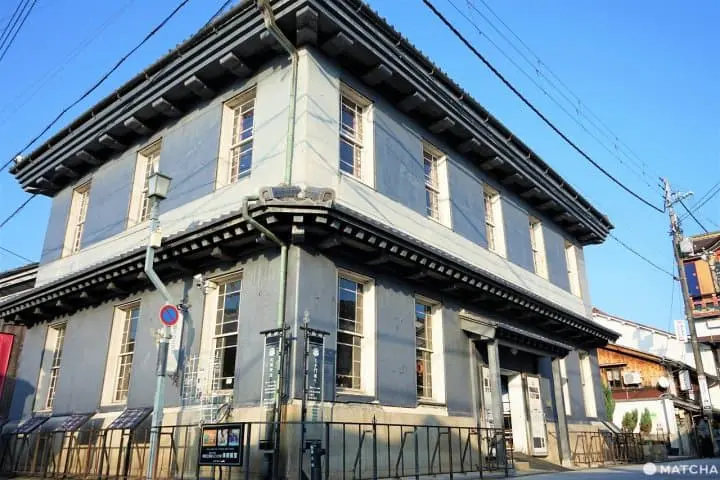
Kurokabe Square is a district of shops, galleries, and glass art studios spanning the central shopping streets of Nagahama. The iconic Kurokabe Glass Shop takes its name from its black plaster walls ("kurokabe").
This building was erected in 1900 and served as a bank for several decades. Eventually, it was abandoned and risked being destroyed. Thankfully, it was bought and repurposed in 1989 by a local corporation that wanted to revive the old shopping district.
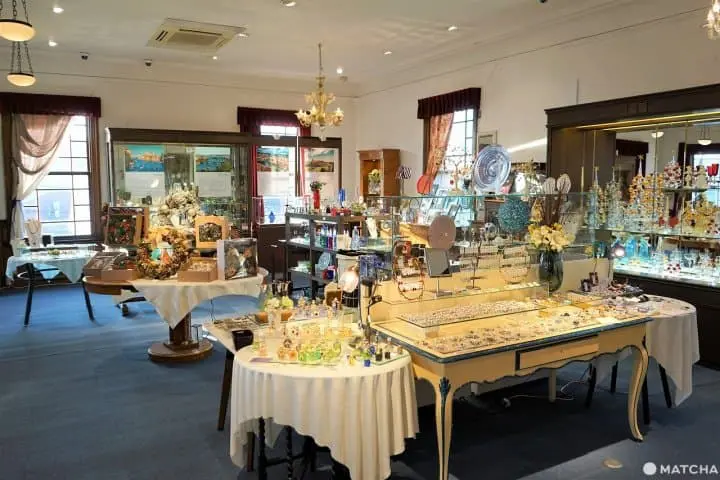
The Kurokabe Glass Shop has two floors with displays of glass items made by Japanese artisans, as well as pieces from all around the world. A visit here is a chance to embark on a cultural trip across the world of glass art.
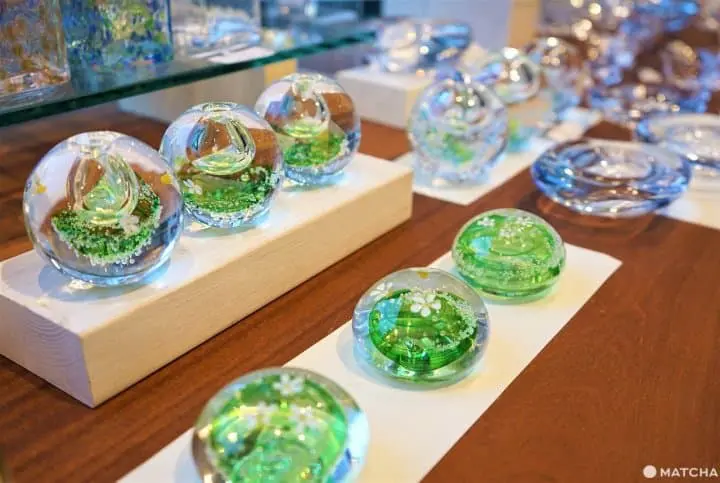
For beautiful glass items made in Nagahama, visit the Kurokabe Glass Sudio, which is both a glass art studio and a shop.
There are several other buildings in Kurokabe Square, including the charming Kurokabe Music Box Shop, the handmade specialty goods shop Monokokoro, and Kurokabe AMISU, a shop with local specialties and souvenirs.
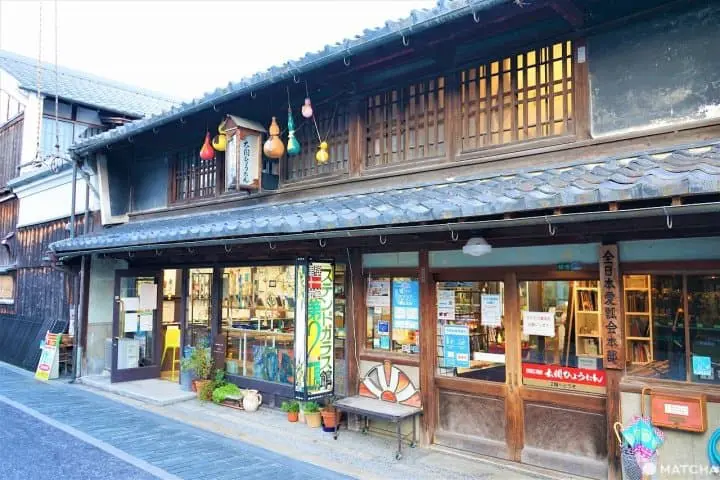
The Stained Glass Shop is a must-visit for lovers of stained glass art.
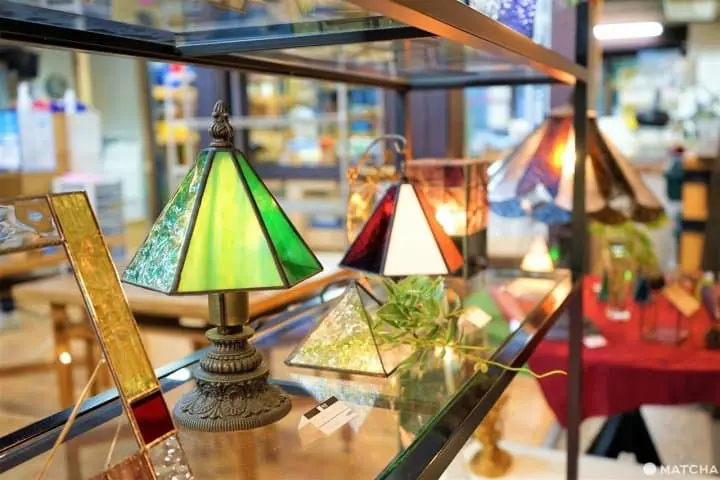
Here, visitors can take part in workshops to make stained glass objects such as lamps, clocks, and photo frames.
Workshops for glass-blowing, fusing, making accessories from glass, and child-friendly lessons are available in Kurokabe Square. Please inquire at the Kurokabe Glass Shop.
3. Nagahama Hikiyama Museum
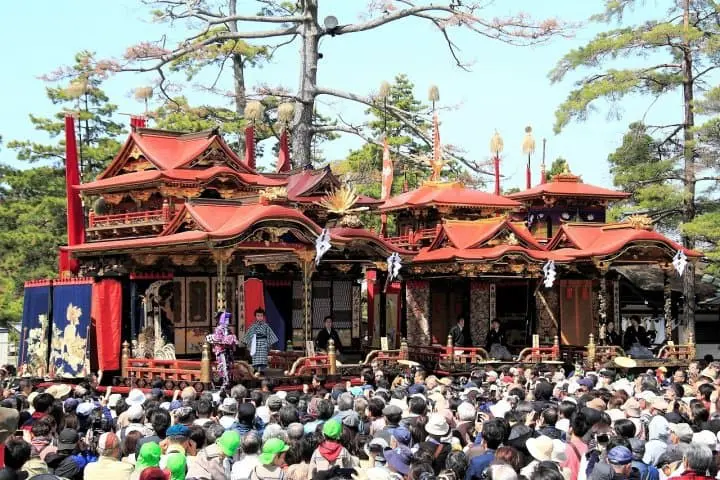
Picture courtesy of Nagahama City
The Nagahama Hikiyama Festival, held every year from April 9 to 17, is a century-long tradition and has become the pride of Nagahama. Designated as an important intangible folk culture asset, this event is dedicated to the guardian deity of the city, which is enshrined at Nagahama Hachimangu Shrine.
There are twelve lavishly decorated floats, each representing one of the twelve central city districts. Every year, four are chosen to take part in the festival parade.
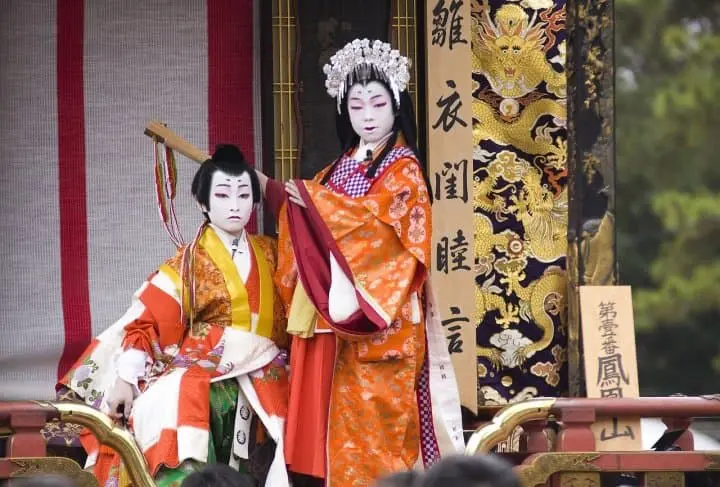
Picture courtesy of Nagahama City
The highlight of the festival is the children's Kabuki performance. Aged between 4 and 12, the young actors prepare intensely at least a month in advance in order to deliver a performance that enchants their audience.
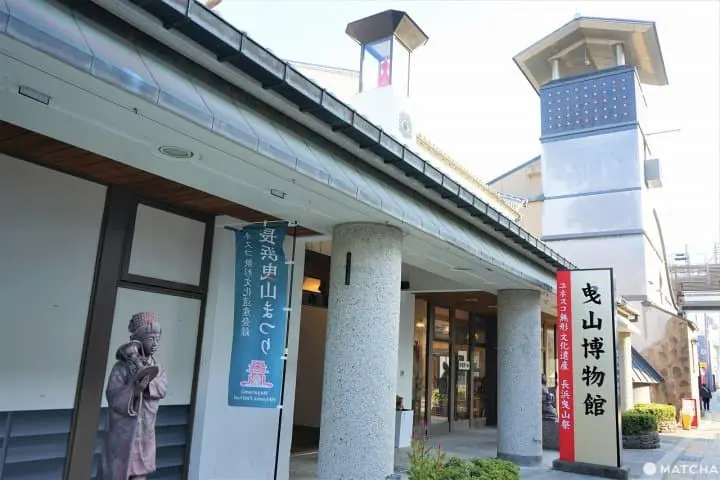
At the Hikiyama Museum, located in the shopping district, visitors can view exhibits and videos of this magnificent festival.
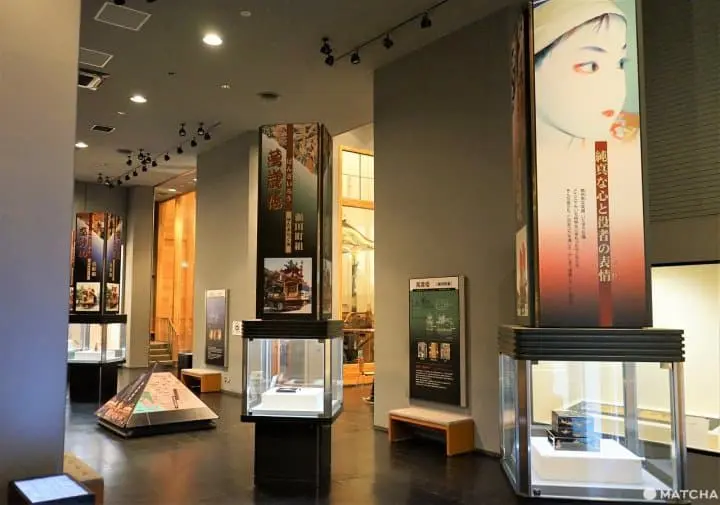
Some of the gorgeous floats are on display, and you can see the exhaustive craftsmanship poured into every detail of their structure--from the ceilings covered in gold leaf and lacquer to extremely delicate tapestries that incorporate imagery from European culture of the 16th century.
A visit to the Nagahama Hikiyama Museum is essential for a deeper understanding of the rich traditional culture of Nagahama.
The city boasts many other wonderful places to visit such as Nagahama Castle, now a history museum, the Nagahama Railway Museum, which occupies the oldest extant railway station in Japan, or Daitsuji Temple, famous for its impressive wooden carvings.
For details on all the great places to visit in Nagahama and information on the latest events, please visit the official tourist website of Nagahama.
What to Eat in Nagahama
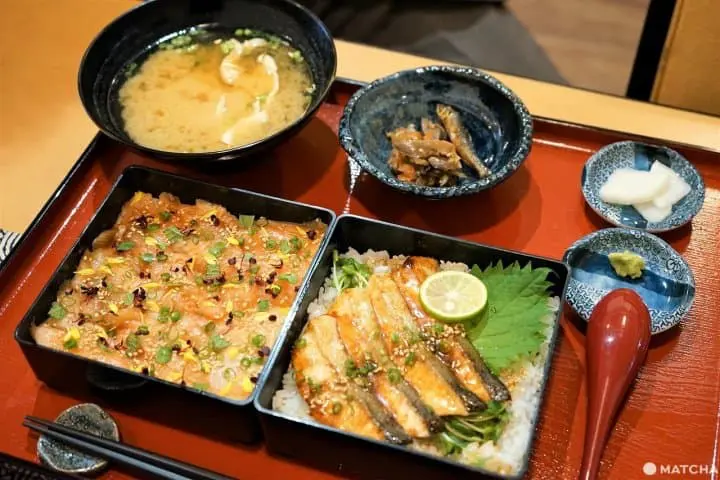
One of the local specialties in Nagahama is Biwa salmon, Biwa masu in Japanse. This flavorful fish is caught locally in the waters of Lake Biwa! The gorgeous Biwa Masu Gozen set shown in the picture above can be enjoyed at Yamamotoya Uohama. It consists of rice topped with Biwa salmon sashimi and fried salmon, delicious miso soup, and pickles.
Omi beef, and noodle dishes with fried mackerel (yakisaba somen) are also popular dishes worth trying out.
Tsuruga - A City of Railroads and Maritime Transportation
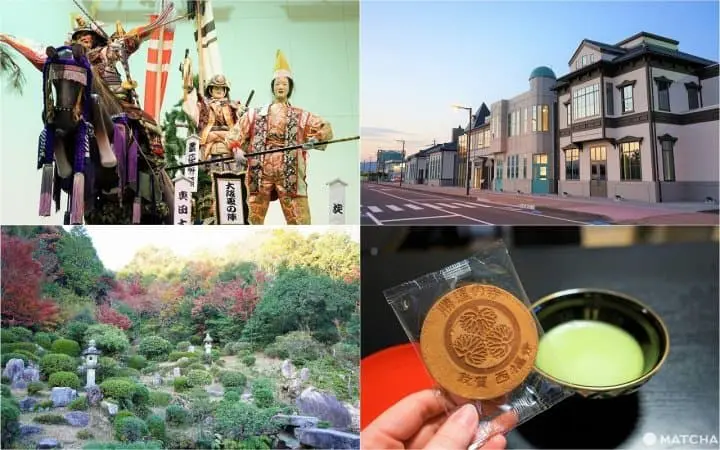
Tsuruga is a port city in Fukui Prefecture that has served as a gateway for maritime trade across the Sea of Japan since ancient times. It was also one of the first cities to be connected to the major cities of Japan by rail. This history led to Tsuruga being known as a city of railways and maritime transportation.
The city flourished in the Edo period (1603-1868) when it served as a port for the Kitamaebune, trade ships that transported goods between northern and western Japan, as well as in the industrialization years of the Meiji (1868-1912) and Taisho periods (1912-1926). This background accounts for the richness of local culture, which can be enjoyed in its festivals, shrines, and temples.
4. Kehi Jingu Shrine
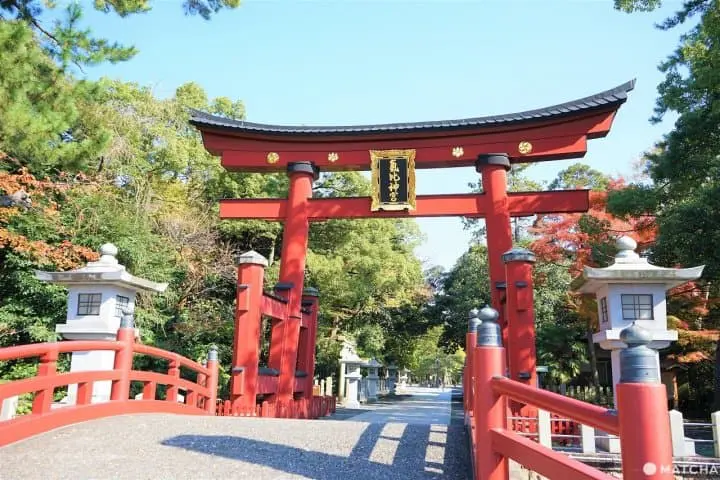
Kehi Jingu Shrine, mentioned in Japan's earliest chronicles, stands at the center of the city. One of the most prominent shrines in Japan, it enshrines several deities, including the god of crops and the guardian of travel at sea.
Its majestic torii gate, the third largest wooden torii in Japan, has been designated an Important National Cultural Property.
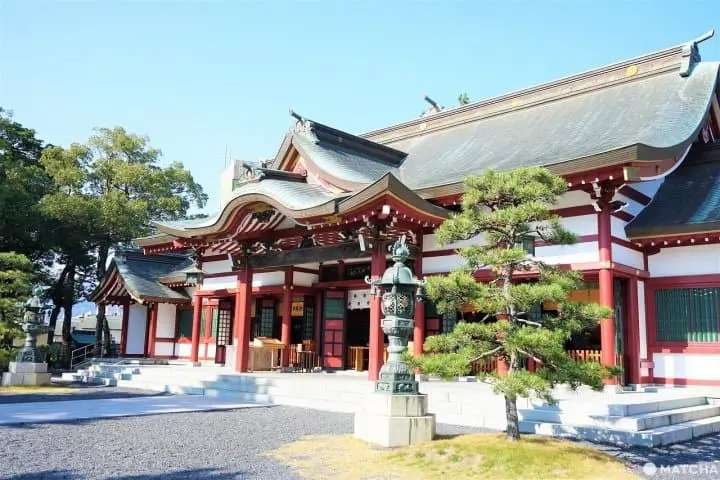
The main shrine hall is often visited on important life occasions such as marriage, birth, anniversaries, and New Year celebrations.
The renowned poet Matsuo Basho (1644-1694) visited Kehi Jingu Shrine in his travels and wrote haiku poems here, which are inscribed on a monument located on the shrine grounds.
Kehi Jingu is an important symbol of Tsuruga and its community. Start your explorations of the city here and you're sure to deepen your understanding of the local culture!
5. Minato Tsuruga Float Museum
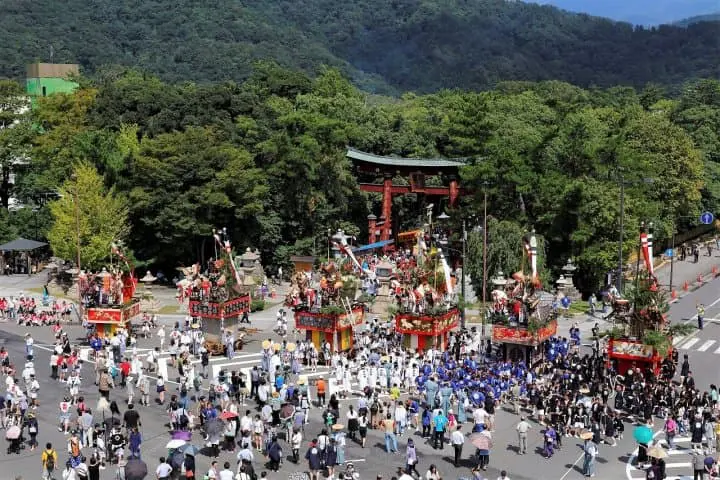
Picture courtesy of Tsuruga City
The main festival dedicated to the deities of Kehi Jingu Shrine, the Tsuruga Festival, is held every year in September. Enormous festival floats called yama are paraded through the city in large processions that include the entire community.
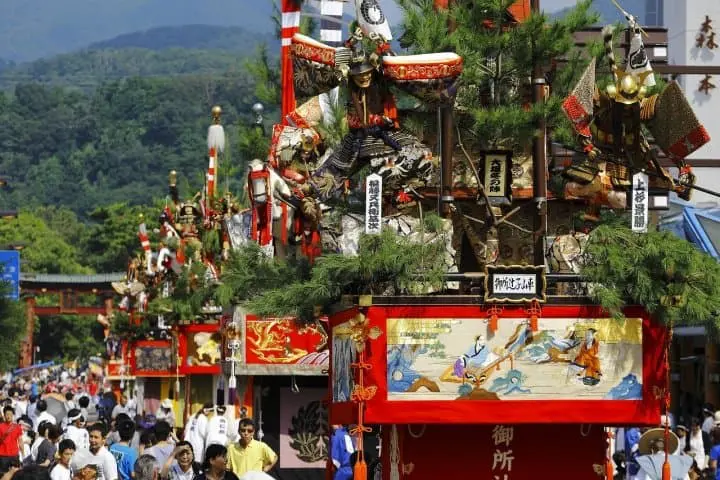
Picture courtesy of Tsuruga City
The yama are decorated with life-sized dolls wearing armor and Noh masks. These represent heroes from Japanese history, with each yama representing a scene from a famous battle. The floats are meticulously crafted and have been designated a national heritage.
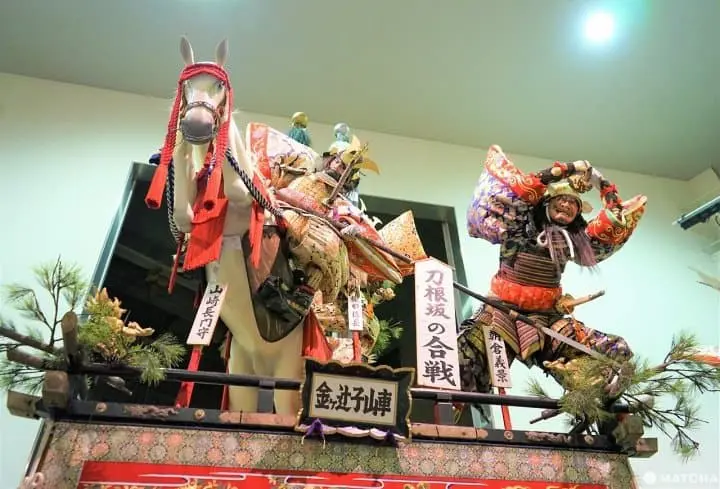
Outside of festival days, the Tsuruga yama floats can be viewed up close at the Minato Tsuruga Float Museum. The exhibition rooms allow visitors to see the details of each float from below and above.
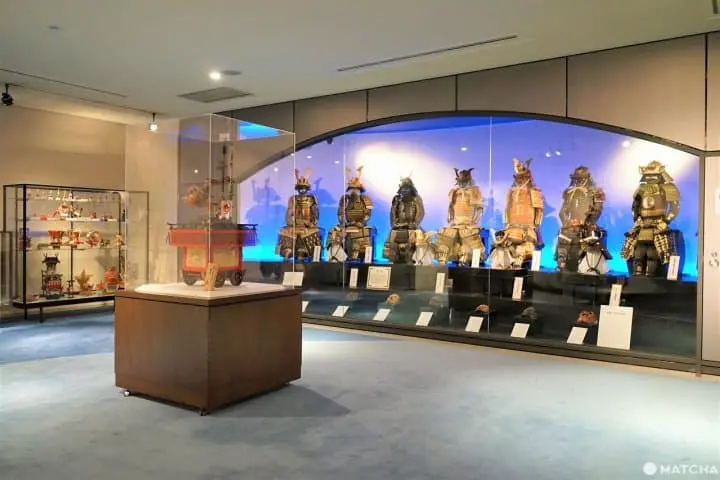
Videos showing the Tsuruga Festival can be seen, as well as exhibitions of the decorative armor and Noh masks passed from generation to generation by the local community.
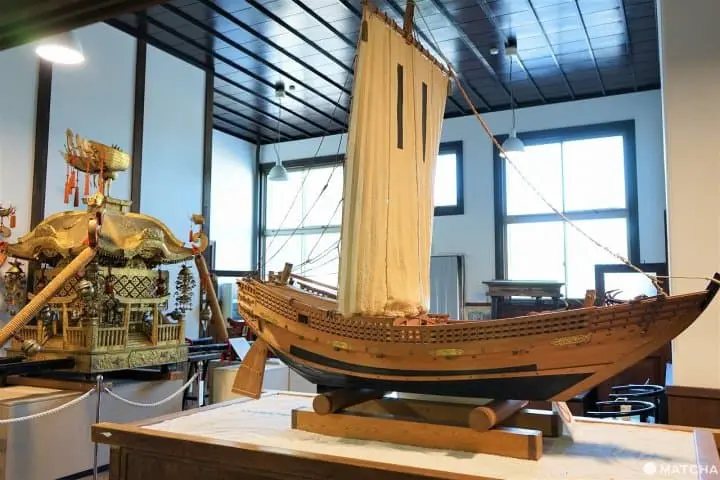
An annex of the museum is dedicated to artifacts related to Owada Shoshichi (1857-1947), a businessman who contributed to the flourishing of the city through international maritime trade.
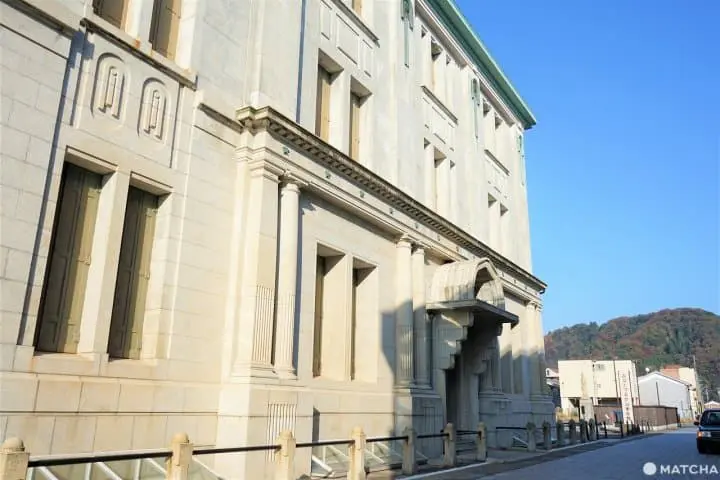
Owada founded the first bank of Tsuruga, an impressive European-style building erected in 1927 that is currently home to the Tsuruga City Museum (Japanese).
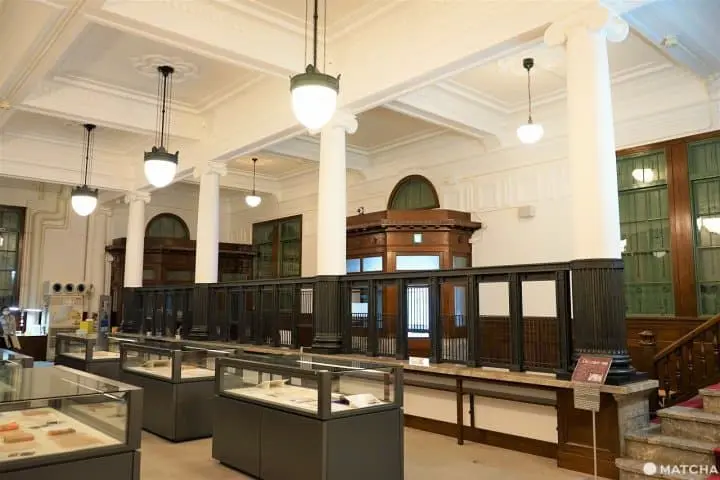
The interior of the building preserves its original structure. Visitors can enjoy exhibitions on the history of Tsuruga, as well as art exhibitions.
6. Tsuruga Red Brick Warehouse
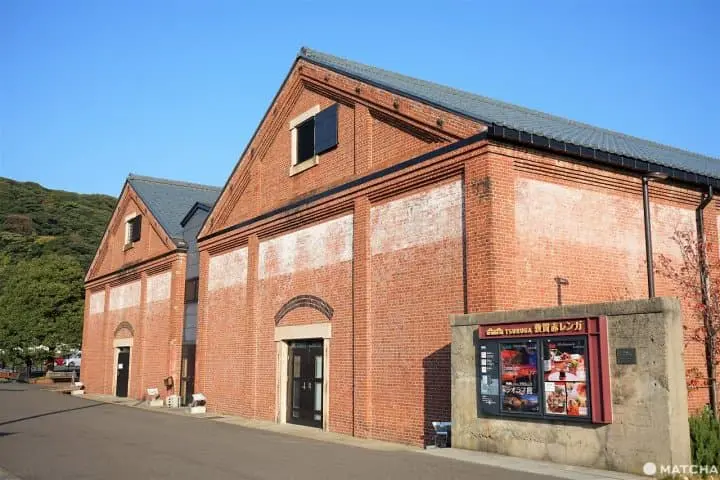
The Tsuruga Red Brick Warehouse, located near the Port of Tsuruga, opened in 2015. Repurposing oil storage warehouses that were over one hundred years old, the facility consists of an exhibition area, dining facilities, and souvenir shops.
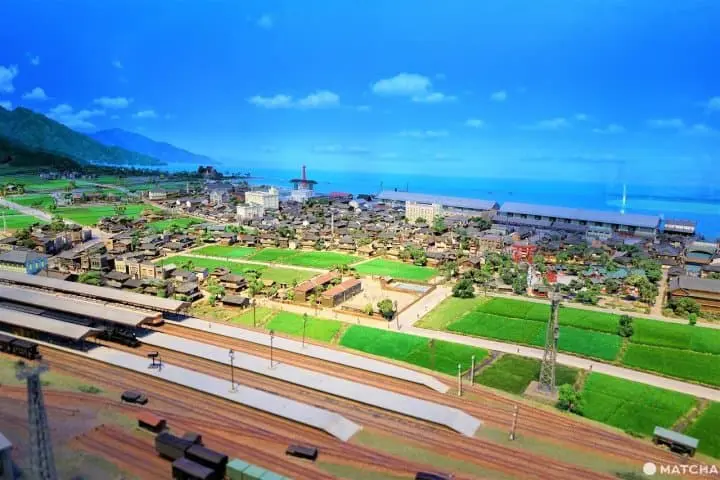
A beautiful diorama of Tsuruga can be viewed inside. Called the Nostalgic Diorama by locals, this exhibit shows the historical townscape of Tsuruga, much of which was lost during WWII.
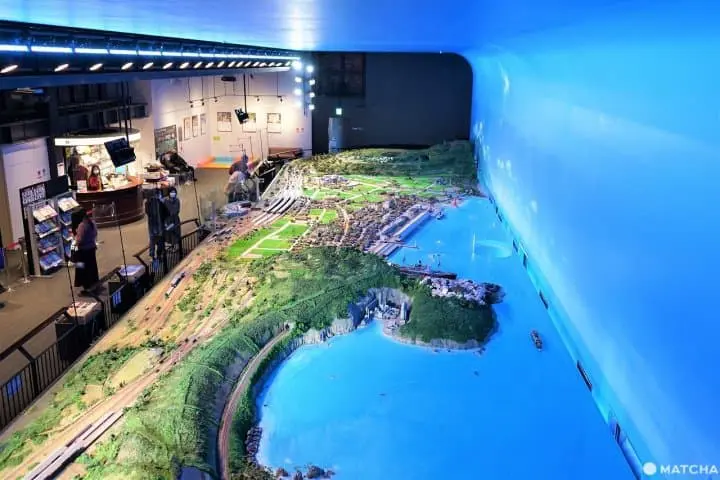
The diorama shows how Tsuruga developed as a hub of railway and maritime transportation on the coast of the Sea of Japan.
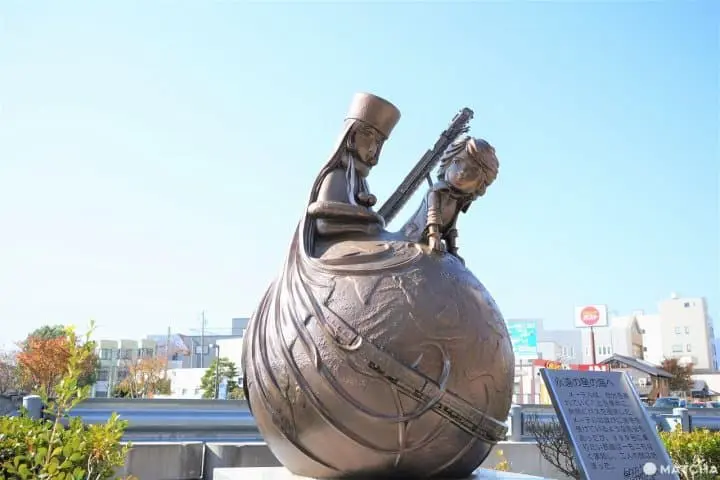
The special importance of the railroads and port in Tsuruga can also be felt in the impressive statues of characters from "Galaxy Express 999" and "Space Battleship Yamato," which line the streets of the central shopping district. Fans of these famous manga and anime works will be enthralled to see how detailed and beautiful these statues are!
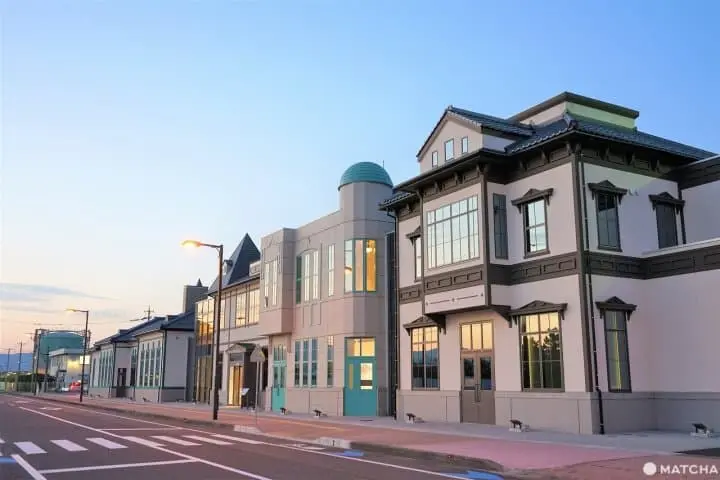
In addition to the places introduced above, the Port of Humanity Tsuruga Museum, which reopened in 2020, is worth visiting. It details the history of Tsuruga Port welcoming Jewish refugees that escaped Siberian concentration camps in the 1940s.
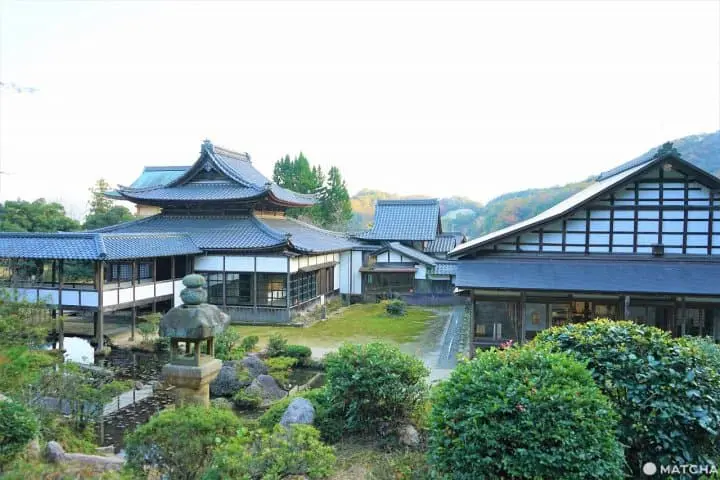
A 10-minute car ride from Tsuruga Port takes you to Saifukuji Temple, whose impressive garden represents the Buddhist Pure Land Paradise. It's truely a site of scenic beauty.
To find other wonderful places to visit in Tsuruga, please visit Tsuruga Guide, the official tourist website of the city.
What to Eat in Tsuruga
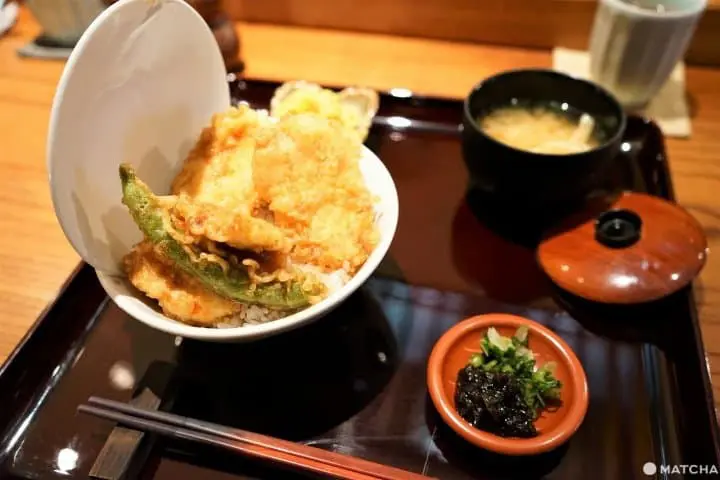
A port city, Tsuruga boasts exquisite seafood at any time of the year. However, if you wish to taste a unique local specialty, try the Keisan-don set offered by Yamatomo, a Japanese restaurant just across the street from Kehi Jingu. Tsuruga citizens use the name Kei-san to refer to Kehi Jingu Shrine. "Kei" is also the word for "chicken" in Japanese. This play on words prompted the owner of Yamatomo to create a donburi (rice bowl) dish topped with delicious chicken tempura.
Kaga - Famous Hot Springs and Kutani Ware
Kaga, located in Ishikawa, is best known as a destination for hot spring holidays. The city preserves beautiful traditional architecture and artisanal crafts, which are especially prominent in its hot spring town districts such as Yamashiro Onsen and Yamanaka Onsen.
7. Yamashiro Onsen Kosoyu
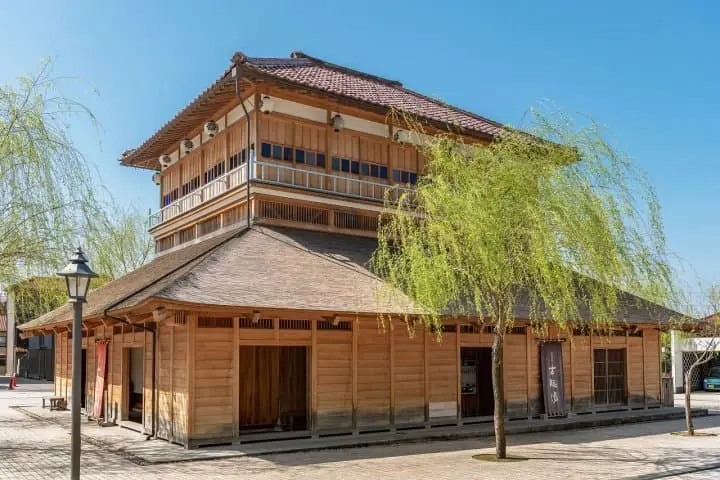
Photo by Pixta
Kosoyu is an iconic structure located in the heart of Yamashiro Onsen. This public bathhouse has an interior adorned with fine local crafts such as Kutani ceramic tiles and stained glass. The second floor is a rest area where visitors can enjoy a cup of tea while gazing at the townscape. It's a great place to stop by while on a hot spring tour through Yamashiro Onsen.
8. Hazuchio Gakudo

Hazuchio is an ideal place to visit for those seeking artisanal crafts and local specialties from Kaga. The facility has a shop that sells delicate Kutani ceramics and other locally-made craft items, as well as a cafe that offers tea and delicious local confections.
The beautiful streets of Yamashiro Onsen, lined with buildings that preserve an elegant, traditional charm, will surely make you want to spend at least two days in this town.
Discover the Charm of Japanese Townscapes
A trip to Nagahama, Tsuruga, or Kaga is a chance to encounter exciting festival cultures that boast century-old traditions, beautiful townscapes with a retro atmosphere, and a history that connects this area to the whole world through the Sea of Japan.
These three cities can be easily accessed from Tokyo. Take the Shinkansen to Maibara and change to an express train that stops in each city. A visit to any of these cities will be an unforgettable deep dive into the rich cultures that flourished in the Hokuriku Region.
Read also
Written by Ramona Taranu
Sponsored by the Association for Promotion of Japan Sea Routes


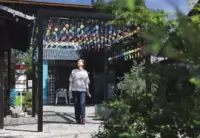
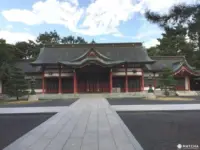
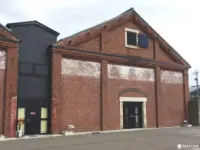






























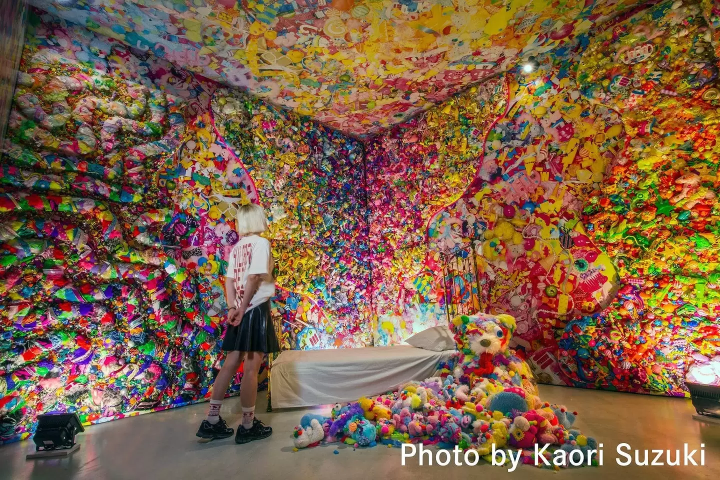
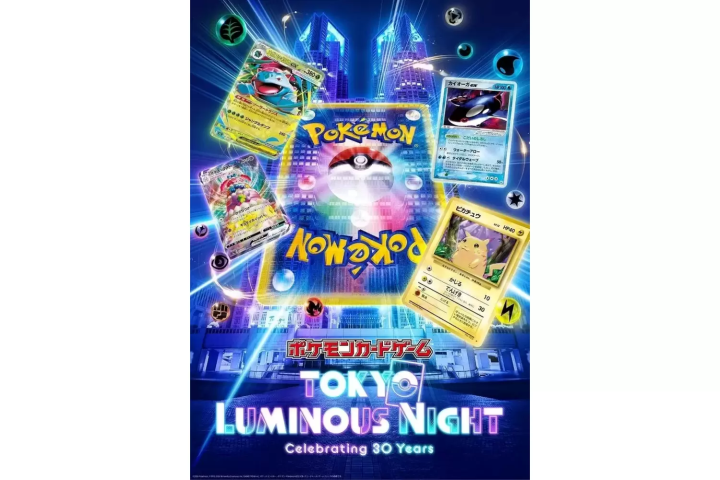









![[Southern Oita Prefecture (Usuki and Saiki)] A journey through fermentation and tradition. Oita Sustainable Gastronomy](https://resources.matcha-jp.com/resize/720x2000/2026/02/27-259975.webp)
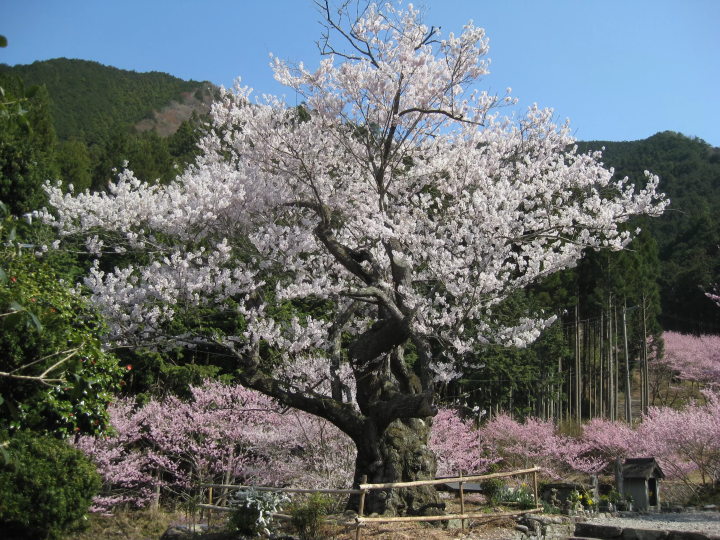
![[Hiroshima] ORIZURU Making at the Hotel / Sheraton Grand Hiroshima Hotel](https://resources.matcha-jp.com/resize/720x2000/2026/02/26-259811.webp)
![[Aichi] 30 minutes from Nagoya! 8 must-see tourist spots in Tokoname, the city of beckoning cats and pottery](https://resources.matcha-jp.com/resize/720x2000/2026/02/26-259808.webp)